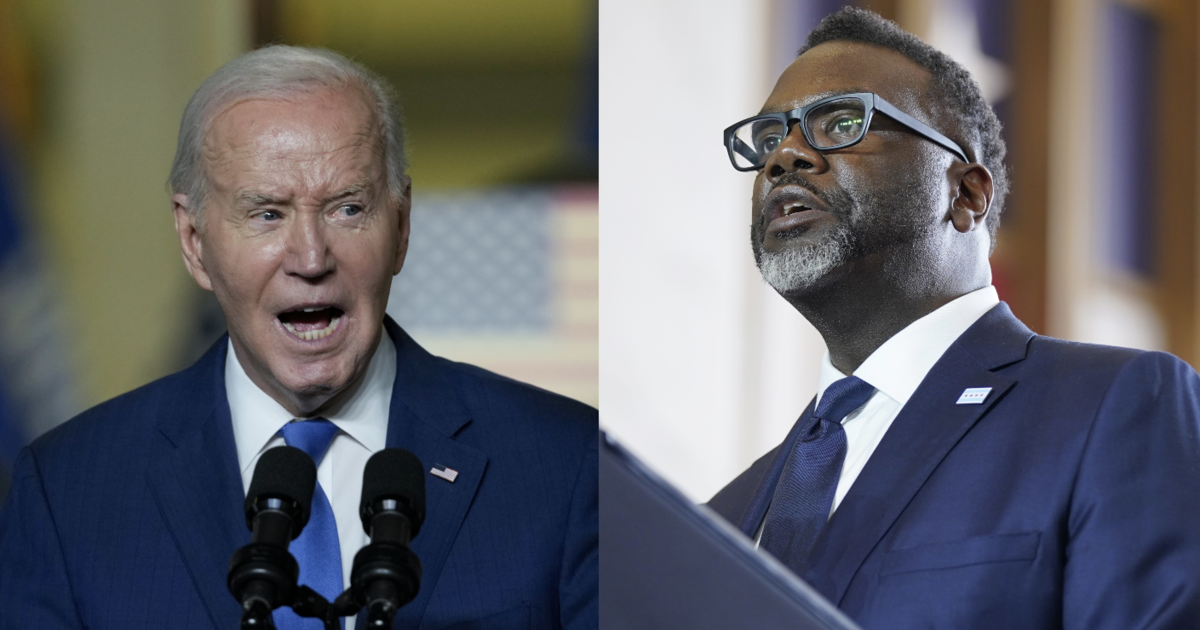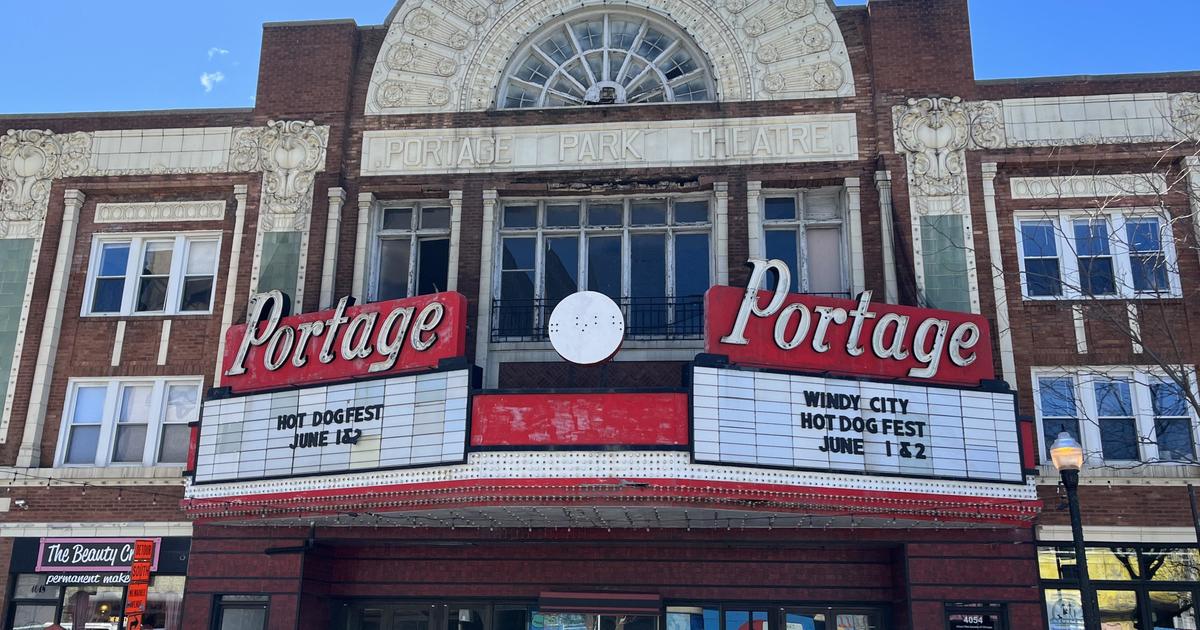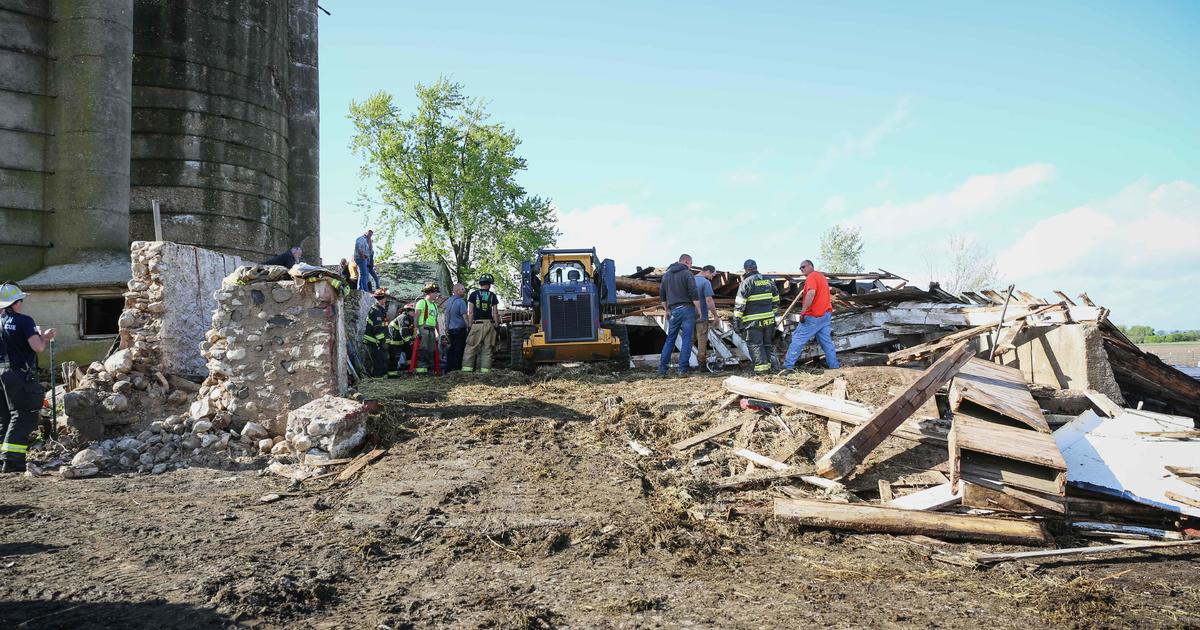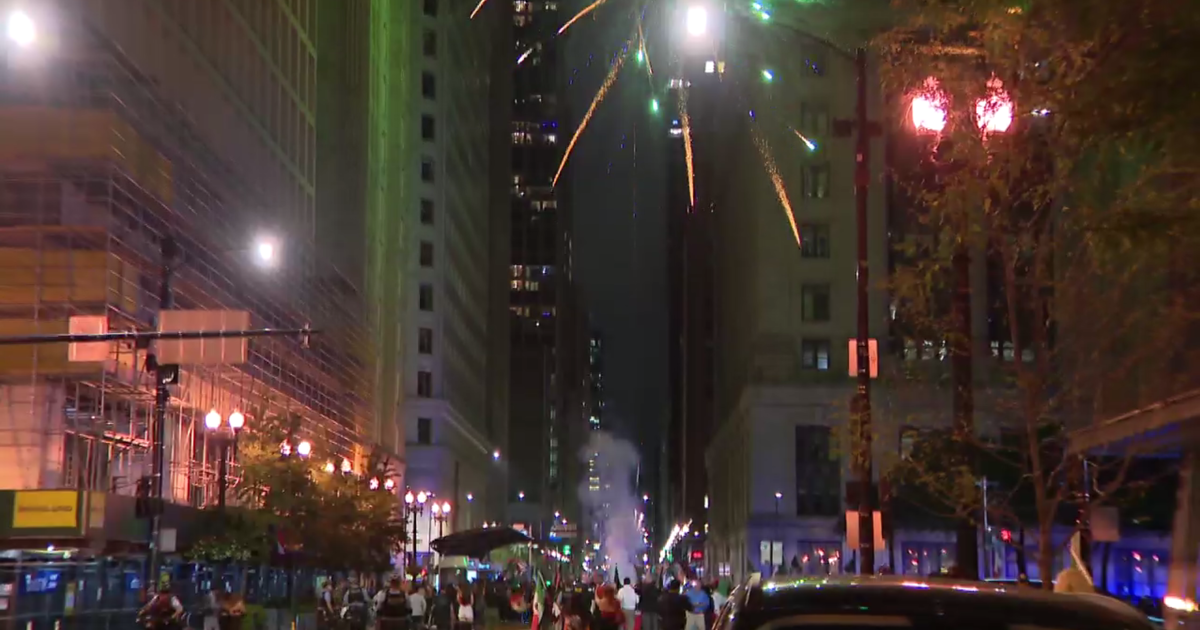Illinois Democrats, Republicans Look To Impact Walker Recall Election In Wisconsin
Updated 06/04/12 - 5:23 p.m.
CHICAGO (CBS) -- A local political expert says the fight in Wisconsin over whether to recall Gov. Scott Walker is an unfortunate event for both sides in the political battle.
Walker, a Republican, is facing a recall election on Tuesday, against Democrat Tom Barrett, the current mayor of Milwaukee. The recall effort was spurred by Walker's successful push to to strip unionized government employees of virtually all of their collective bargaining rights in Wisconsin, over that state's ballooning pension costs.
Two recent polls have shown Walker leading Barrett by margins of three to seven percent. But those leads are within the margin of error for recent polls, meaning the race could be a dead heat.
CBS 2's Derrick Blakley reports the fight isn't just contained to Wisconsin. In Illinois, volunteers on both sides of the political aisle have been working to impact the race, which could also have repercussions in the race for president in November.
At a West Side union hall, volunteers have made more than 120,000 phone calls to Wisconsin in just six days, in hopes of defeating Scott Walker.
Chicago Federation of Labor president Jorge Ramirez said, "He's getting a ton of money from outside interests in order to hold him up, because his ideas can't hold up on their own."
Organized labor unions have been going after Walker, because he went after them, backing new laws that stripped public employee unions of their bargaining rights.
Union volunteer Samantha Brill said, "He has personally attacked the unions, and he's tried to break them up, and tried to make them a non-factor."
Fellow volunteer Tom Woltjen said, "If Scott Walker is allowed to do what he did, then other governors in other states will attempt to do the same thing."
That's exactly what most Democrats fear and many Republicans desire.
WLS radio host and longtime conservative political commentator Dan Proft said, "What this really is is a message for Illinois Republicans to gird their loins in Springfield, and stop being afraid of the public sector unions – stop allowing the enemy inside our perimeter – and take the teachers unions, and AFSCME, and SEIU on straight away, like they did in Wisconsin."
CBS News Correspondent Dean Reynolds reports the big question for the race will be turnout. When Walker was first elected in 2010, 2.1 million voters went to the polls. Experts in Wisconsin predict turnout could be as high as 2.8 million for the recall election.
Oddly enough, many of the Wisconsin voters who support Walker are also supporters of President Obama, who won Wisconsin by 14 points in 2008. That would require a huge turnaround in sentiment among Wisconsin voters for Obama to lose that state this year.
Republicans believe a Walker win could put Wisconsin in play for the 2012 presidential election, but professional pollsters aren't so sure.
While former President Bill Clinton has campaigned for Barrett, President Barack Obama has not.
Illinois Republican Party Chairman Pat Brady said, "I think he sees what's going to happen tomorrow night, and he's avoiding Wisconsin. He's in New York raising money today."
Illinois conservatives sent busloads of volunteers to Wisconsin to work for Walker over the weekend, and some Illinois Tea Party members will be in Wisconsin on Tuesday, volunteering as poll watchers.
Walker has raised $6 million since late April, with two thirds that coming from out of state.
As WBBM Political Editor Craig Dellimore reports, Northwestern University political science professor Kenneth Janda called recall votes in general a crude way for the public to take control of a problem.
LISTEN: WBBM Newsradio Political Editor Craig Dellimore reports
Podcast
"Recall is a measure … an attempt to assert popular control over government. It's a very crude measure, and it's only been used successfully twice for governors in our history," he said.
But he said the public pension crises in Wisconsin and Illinois were not just the fault of union workers, but the governments that failed to maintain pension payments.
"People get greedy. Unions can get greedy, too, just as businesses can get greedy. And I think what's happened is they've managed to negotiate benefits that really could never be paid," Janda said.
He said businesses have also promised workers too much in pension benefits, then failed to fund them later on. Some of those businesses ended up going bankrupt.
Janda said getting out of the situation won't be about whether the unions prevail or not.
"It's really a sad, sad situation; and I have no idea how anybody's going to get out of this without everybody being hurt," Janda said.



